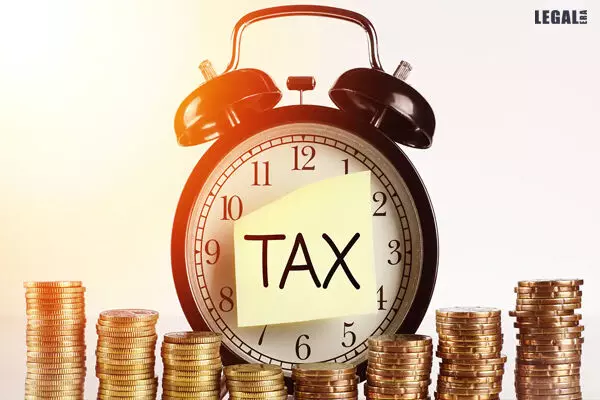- Home
- News
- Articles+
- Aerospace
- Artificial Intelligence
- Agriculture
- Alternate Dispute Resolution
- Arbitration & Mediation
- Banking and Finance
- Bankruptcy
- Book Review
- Bribery & Corruption
- Commercial Litigation
- Competition Law
- Conference Reports
- Consumer Products
- Contract
- Corporate Governance
- Corporate Law
- Covid-19
- Cryptocurrency
- Cybersecurity
- Data Protection
- Defence
- Digital Economy
- E-commerce
- Employment Law
- Energy and Natural Resources
- Entertainment and Sports Law
- Environmental Law
- Environmental, Social, and Governance
- Foreign Direct Investment
- Food and Beverage
- Gaming
- Health Care
- IBC Diaries
- In Focus
- Inclusion & Diversity
- Insurance Law
- Intellectual Property
- International Law
- IP & Tech Era
- Know the Law
- Labour Laws
- Law & Policy and Regulation
- Litigation
- Litigation Funding
- Manufacturing
- Mergers & Acquisitions
- NFTs
- Privacy
- Private Equity
- Project Finance
- Real Estate
- Risk and Compliance
- Student Corner
- Take On Board
- Tax
- Technology Media and Telecom
- Tributes
- Viewpoint
- Zoom In
- Law Firms
- In-House
- Rankings
- E-Magazine
- Legal Era TV
- Events
- Middle East
- Africa
- News
- Articles
- Aerospace
- Artificial Intelligence
- Agriculture
- Alternate Dispute Resolution
- Arbitration & Mediation
- Banking and Finance
- Bankruptcy
- Book Review
- Bribery & Corruption
- Commercial Litigation
- Competition Law
- Conference Reports
- Consumer Products
- Contract
- Corporate Governance
- Corporate Law
- Covid-19
- Cryptocurrency
- Cybersecurity
- Data Protection
- Defence
- Digital Economy
- E-commerce
- Employment Law
- Energy and Natural Resources
- Entertainment and Sports Law
- Environmental Law
- Environmental, Social, and Governance
- Foreign Direct Investment
- Food and Beverage
- Gaming
- Health Care
- IBC Diaries
- In Focus
- Inclusion & Diversity
- Insurance Law
- Intellectual Property
- International Law
- IP & Tech Era
- Know the Law
- Labour Laws
- Law & Policy and Regulation
- Litigation
- Litigation Funding
- Manufacturing
- Mergers & Acquisitions
- NFTs
- Privacy
- Private Equity
- Project Finance
- Real Estate
- Risk and Compliance
- Student Corner
- Take On Board
- Tax
- Technology Media and Telecom
- Tributes
- Viewpoint
- Zoom In
- Law Firms
- In-House
- Rankings
- E-Magazine
- Legal Era TV
- Events
- Middle East
- Africa
Madras High Court Directs Assessing Officer to Permit Transitional Credit of Purchase Tax Paid Under TNVAT Act for GST Act

Madras High Court Directs Assessing Officer to Permit Transitional Credit of Purchase Tax Paid Under TNVAT Act for GST Act
The Madras High Court has instructed the Assessing Officer to permit transitional credit for purchase tax payments made under Section 140 of the TNGST Act, 2017, provided the petitioner had paid "purchase tax" under Section 12(1) of the TNVAT Act.
Justice C. Saravanan has noted that, the petitioner should have an opportunity to present their defence, especially considering that the assessment order was issued during a semi-lockdown period. If the VAT-TDS indeed remained unused for tax liability under the TNVAT Act, 2006, there should be a fresh adjustment of this amount towards the petitioner's tax liability. Subsequently, any unutilized input tax credit (ITC) should be permitted for transition under Section 140 of the TNGST Act, 2017, or refunded to the petitioner in accordance with Section 54 of the TNGST Act, 2017, along with the TNVAT Act, 2006.
The petitioner operates as a works contractor, providing works contract services. The contention put forth is that the employer, who engaged the petitioner for these services, deducted tax deducted at source (TDS) under Section 13 of the Tamil Nadu Value Added Tax Act, 2006 (TNVAT Act, 2006). Subsequently, this deducted TDS amount, along with the purchase tax paid by the petitioner, was transitioned under Section 140 of the TNGST Act, 2017, and utilized as an input tax credit (ITC).
The respondent erroneously denied the transmission of the tax. Subsequently, upon receiving the second final demand notice or final order demanding payment of the confirmed amount towards tax arrears, the petitioner filed the writ petition.
The assessee argued that they were entitled to transition the unutilized input tax credit (ITC) from the VAT account. They further contended that the assessment order, issued without adhering to the principles of natural justice, should be invalidated and set aside.
The respondent department argued that the writ petition, which challenges the order based on grounds such as principles of natural justice or lack of jurisdiction, is only available to the petitioner if it was filed within the period of limitation.
The assessee argued that the assessment order was issued during the peak of the second wave of COVID-19 (Omicron) in April 2021. The petitioner explained that they had hired an elderly accountant as a tax consultant to handle their case, and unfortunately, the accountant passed away due to the COVID-19 pandemic. As a result, the statutory appeal under Section 107 of the TNGST Act, 2017, could not be filed.
The court stated, "If the input tax credit (ITC) was legitimately claimed by the petitioner for the 'purchase tax' remitted under Section 12(1) of the TNVAT Act, 2006, and if it remained unutilized, then the petitioner had the right to transition it under Section 140 of the TNGST Act, 2017, as transitional credit."
The court instructed the assessing officer to reevaluate the assessment process by initially offsetting the tax deducted at source under Section 13(1) of the TNVAT Act, 2006, in conjunction with the TNVAT Rules, 2007, and crediting it to the government. Following this, any surplus input tax credit remaining unutilized after adjusting the tax deducted at source under Section 13(1) of the TNVAT Act, 2006, in accordance with TNVAT Rules, 2007, and ITC towards the petitioner's tax liability during the disputed periods should be refunded.



